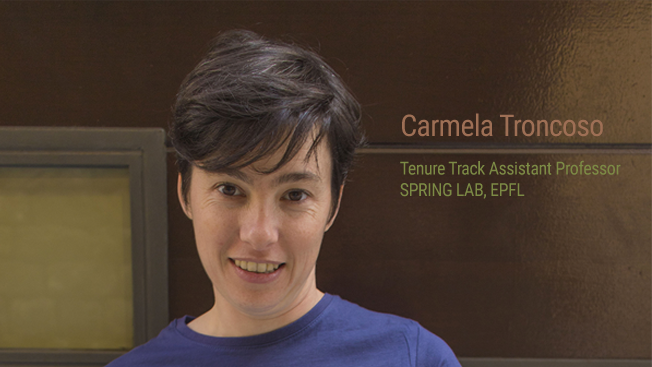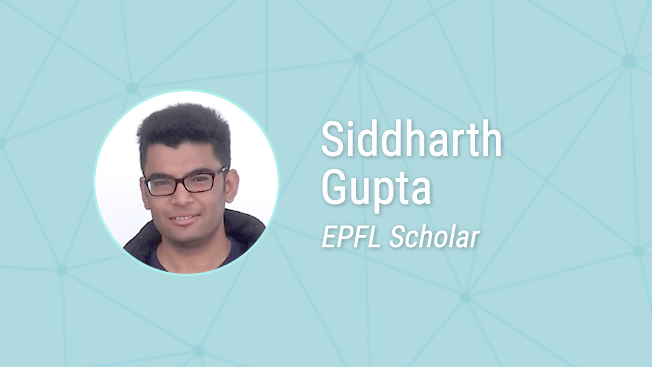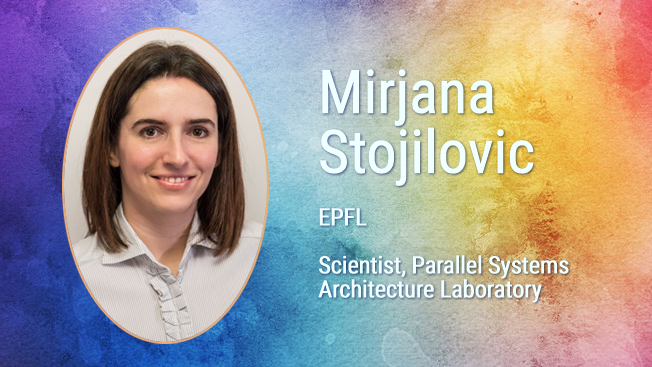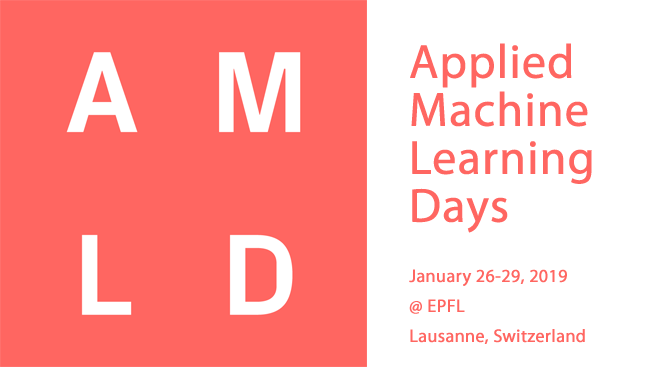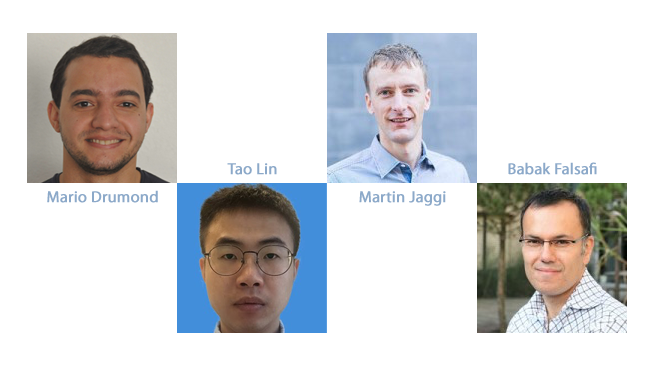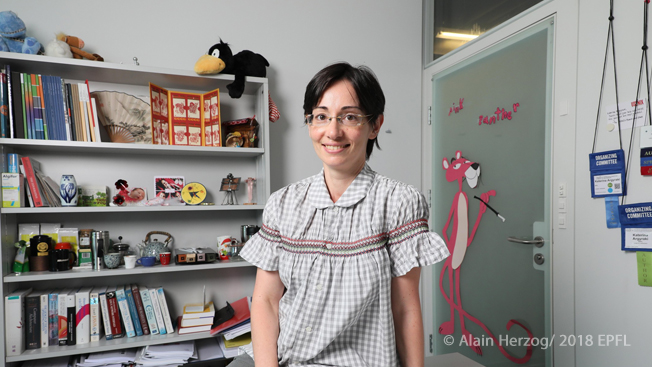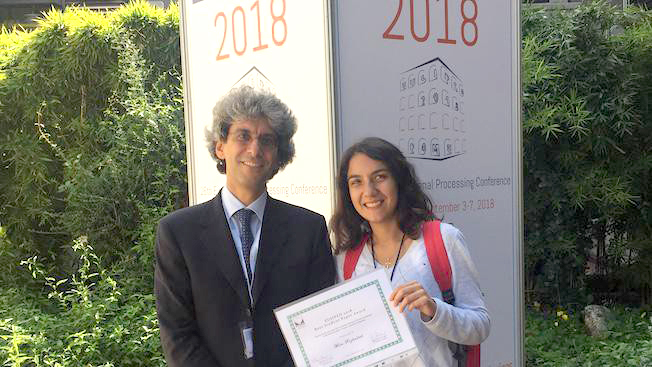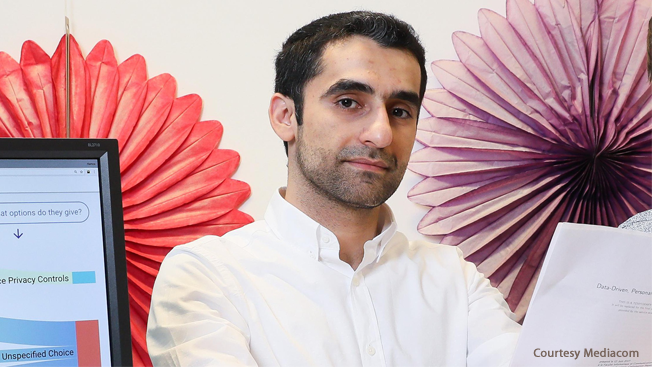The winners for 2018 have just been announced, and among them is Carmela Troncoso, tenure-track assistant professor in the EPFL School of Computer and Communication Sciences (IC).
Read MoreNews
EPFL Student Wins Best Paper Award at HPCA 2019
Siddharth Gupta is pursuing his doctoral program at the School of Computer and Communication Sciences (IC) under the supervision of Professor Babak Falsafi, founding director of the EcoCloud research center. Siddharth’s special area of interest is on systems and interdisciplinary systems problems in modern, large-scale datacenters. His current research focuses on providing architectural support for high-performance durable transactions with persistent memory. The award-winning paper stems from that focal area of his research engagement.
Read MoreNew Research Meets FPGA Attacks Head On
Data centers are taking on huge workloads including Deep Neural Networks, data analytics, and video streaming. Even the most robust CPU- and GPU-based architectures are unable to handle today’s demanding computing environment. Therefore, the current trend is to turn to new forms of accelerators called Field Programmable Gate Arrays (FPGAs), which demonstrate superior energy performance. Commercial behemoths like Intel, Amazon, and Microsoft have added FPGAs in their data centers through takeovers and system implementations. However, are FPGAs safe from security attacks? If not, how can such attacks be tackled? A fresh research proposal by EPFL’s Mirjana Stojilovic seeks to address these and related concerns regarding FPGAs.
Read MoreEcoCloud Faculty among Swiss JRC PIs for 2019
The collaborative engagement between Microsoft and EPFL goes back to 2008 when they came together, along with ETH Zurich, for the Microsoft Innovation Cluster for Embedded Software (ICES). That relationship has matured through the years with various phases of the Swiss Joint Research Center (JRC) projects. In the first two phases (2014-18), Swiss JRC supported 9 EPFL projects. After reviewing and ranking 29 proposals for phase III, including 13 from EPFL, JRC has now confirmed nine proposals. Three of them are from EPFL, including two projects submitted by EcoCloud faculty.
Read MoreAMLD 2019 Presents Domain Tracks on AI
For four days (January 26-29), some of the best minds on Machine Learning and Artificial Intelligence congregated for the Applied Machine Learning Days (AMLD) conference at the SwissTech Convention Center at EPFL, Lausanne. With EPFL being the principal organizer of the event, professors Marcel Salathé, Martin Jaggi, and Bob West played a stellar role in the conduct of the event. AMLD2019 included talks, tutorials, and workshops, but it will be best remembered for introducing 16 different “AI & your domain” tracks, which featured talks by domain experts and interesting panels.
Read MoreEPFL Quartet in Medium’s Influential List
The 32nd Annual Conference on Neural Information Processing Systems (NeurIPS 2018) was held in Montreal between December 2 and 8. The proceedings brought together 8000 attendees and 1011 papers. It also included posters and workshops covering an array of algorithms, theories, experiments, and ideas presented by the crème de la crème of researchers on machine learning. Sieving through this massive database, the insightful platform Medium has shortlisted its influential list of papers and poster presentations. In the latter list is “Training DNNs with Hybrid Block Floating Point,” which was presented by EPFL researchers Mario Drumond, Tao Lin, Martin Jaggi, and Babak Falsafi.
Read MoreKaterina Argyraki: Striking the Right Cord with Students
Teaching is an art, and not all teachers are blessed with that skill. It is one thing to deliver lectures to a classroom, and quite another to connect with the students in that classroom. Katerina Argyraki, Tenure Track Assistant Professor at EPFL’s School of Computer and Communication Sciences, clearly belongs to the rarer category of teachers who believe in understanding students’ aptitudes and tailoring lessons accordingly. It is, therefore, not at all surprising that she was recently chosen as “best teacher.”
Read MoreMira Rizkallah Wins Eurasip Best Student Paper Award
In early September, scientists, researchers, and industry leaders assembled in Rome for the 26th European Signal Processing Conference (EUSIPCO 2018). This year, the conference received 869 submissions, out of which about 550 were accepted. The reviewers sieved through those hundreds of important research papers to finally announce the Eurasip Best Student Paper Award. The authors of the winning paper are Mira Rizkallah (INRIA, visiting scholar at EPFL), Francesca De Simone (Post-doctoral fellow at EPFL), Thomas Maugey (INRIA), Christine Guillemot (INRIA), and Pascal Frossard (Associate Professor, EPFL).
Read MoreLicensing Requests Pour in for Polisis
Browsing websites is not without perils. With each visit, you leave some personal data that might be stored and even used by the website to their advantage. Data protection policies posted on websites are meant to make visitors wary of the danger, but the policies are either wrapped in incomprehensible legalese or clothed with seemingly innocuous generic terms that increase ambiguity about what a website does with your personal data. In February this year, researchers at EPFL launched an AI-backed program called Polisis to make life simpler by automatically scanning thousands of websites and generating an accurate and intelligible summary of the data protection policies in a matter of seconds. Few months down the line, the unique program has attracted more than a score of licensing requests from all over the world.
Read MoreMathias Payer Joins EcoCloud
In early July this year, the Board of the Swiss Federal Institutes of Technology appointed Mathias Payer as Tenure Track Assistant Professor in EPFL’s School of Computer and Communication Sciences. In a later development, Prof. Payer agreed to become a member of EcoCloud and share his expertise in protecting computer systems from malicious attacks.
Read More